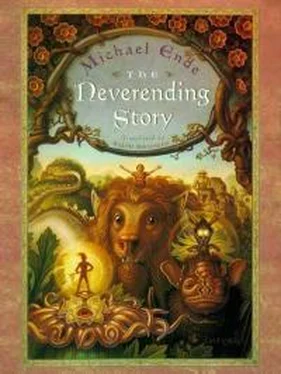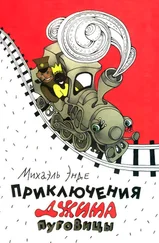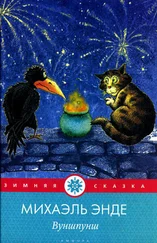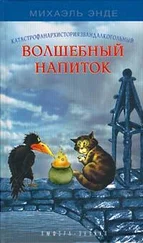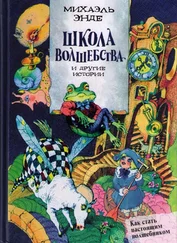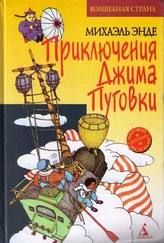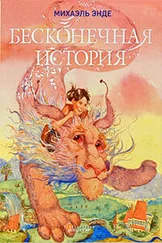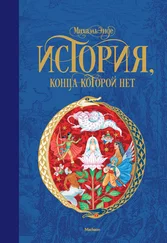Михаэль Энде - The Neverending Story
Здесь есть возможность читать онлайн «Михаэль Энде - The Neverending Story» весь текст электронной книги совершенно бесплатно (целиком полную версию без сокращений). В некоторых случаях можно слушать аудио, скачать через торрент в формате fb2 и присутствует краткое содержание. Год выпуска: 1997, ISBN: 1997, Издательство: Dutton Children's Books, Жанр: Детская проза, fairy_fantasy, на английском языке. Описание произведения, (предисловие) а так же отзывы посетителей доступны на портале библиотеки ЛибКат.
- Название:The Neverending Story
- Автор:
- Издательство:Dutton Children's Books
- Жанр:
- Год:1997
- ISBN:9780525457589
- Рейтинг книги:3 / 5. Голосов: 1
-
Избранное:Добавить в избранное
- Отзывы:
-
Ваша оценка:
- 60
- 1
- 2
- 3
- 4
- 5
The Neverending Story: краткое содержание, описание и аннотация
Предлагаем к чтению аннотацию, описание, краткое содержание или предисловие (зависит от того, что написал сам автор книги «The Neverending Story»). Если вы не нашли необходимую информацию о книге — напишите в комментариях, мы постараемся отыскать её.
The Neverending Story — читать онлайн бесплатно полную книгу (весь текст) целиком
Ниже представлен текст книги, разбитый по страницам. Система сохранения места последней прочитанной страницы, позволяет с удобством читать онлайн бесплатно книгу «The Neverending Story», без необходимости каждый раз заново искать на чём Вы остановились. Поставьте закладку, и сможете в любой момент перейти на страницу, на которой закончили чтение.
Интервал:
Закладка:
The days in the House of Change passed, and it was still summer. Bastian still enjoyed letting Dame Eyola spoil him like a child. Her fruit still tasted as delicious to him as at the start, but little by little his craving had been stilled. He ate less than before. Dame Eyola noticed, though she never mentioned it. He also felt that he had had his fill of her care and tenderness. And as his need for them dwindled, a longing of a very different kind made itself felt, a desire that he had never felt before and that was different in every way from all his previous wishes: the longing to be capable of loving. With surprise and dismay he recognized that he could not love. And the wish became stronger and stronger.
One evening as they were sitting together, he spoke of it to Dame Eyola.
After listening to him, she said nothing for a long while. She looked at Bastian with an expression that puzzled him.
“Now you have found your last wish,” she said finally. “What you really and truly want is to love.”
“But why can’t I, Dame Eyola?”
“You won’t be able to until you have drunk of the Water of Life,” she said. “And you can’t go back to your own world unless you take some of it back for others.”
Bastian was bewildered. “But what about you?” he asked. “Haven’t you drunk of it?”
“No,” said Dame Eyola. “It’s different for me. I only needed someone to whom I could give my excess.”
“But isn’t that love?”
Dame Eyola pondered a while, then she said: “It was the effect of your wish.”
“Can’t Fantasticans love? Are they like me?” he asked anxiously.
She answered: “There are some few creatures in Fantastica, so I’m told, who get to drink of the Water of Life. But no one knows who they are. And there is a prophecy, which we seldom speak of, that sometime in the distant future humans will bring love to Fantastica. Then the two worlds will be one. But what that means I don’t know.”
“Dame Eyola,” Bastian asked, “you promised that when the right moment came you’d tell me what I had to forget to find my last wish. Has the time come?”
She nodded.
“You had to forget your father and mother. Now you have nothing left but your name.”
Bastian pondered.
“Father and mother?” he said slowly. But the words had lost all meaning for him. He had forgotten.
“What must I do now?” he asked.
“You must leave me. Your time in the House of Change is over.”
“Where must I go?”
“Your last wish will guide you. Don’t lose it.”
“Should I go now?”
“No, it’s late. Tomorrow at daybreak. You have one more night in the House of Change. Now we must go to bed.”
Bastian stood up and went over to her. Only then, only when he was close to her, did he notice that all her flowers had faded.
“Don’t let it worry you,” she said. “And don’t worry about tomorrow morning. Go your way. Everything is just as it should be. Good night, my darling boy.”
“Good night, Dame Eyola,” Bastian murmured.
Then he went up to his room.
When he came down the next day, he saw that Dame Eyola was still in the same place. All her leaves, flowers, and fruits had fallen from her. Her eyes were closed and she looked like a black, dead tree. For a long time he stood there gazing at her. Then suddenly a door opened.
Before going out, he turned around once again and said, without knowing whether he was speaking to Dame Eyola or to the house or both: “Thank you. Thank you for everything.”
Then he went out through the door. Winter had come overnight. The snow lay knee-deep and nothing remained of the flowering rose garden but bare, black thornbushes. Not a breeze stirred. It was bitter cold and very still.
Bastian wanted to go back into the house for his mantle, but the doors and windows had vanished. It had closed itself up all around. Shivering, he started on his way.
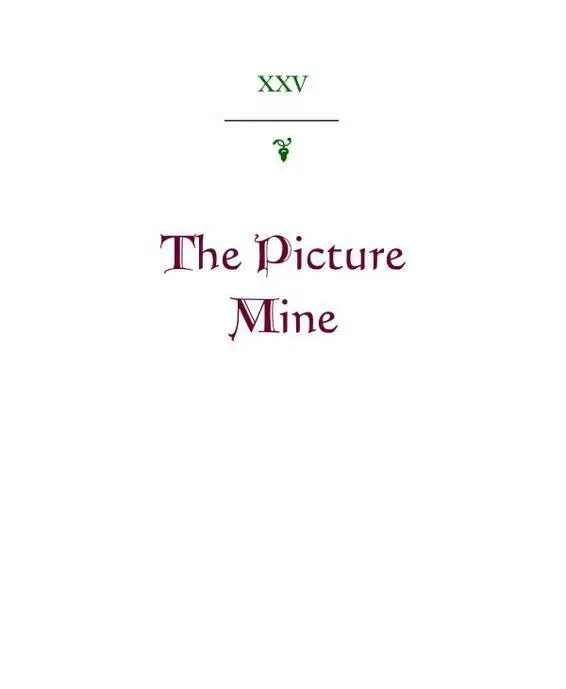
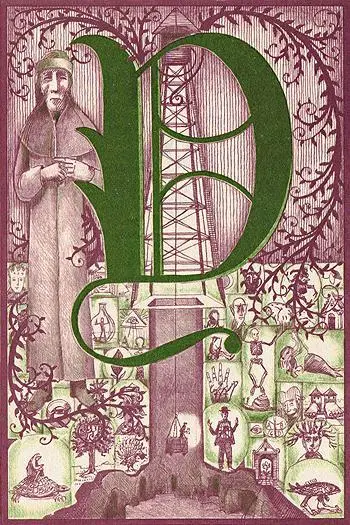 or, the blind miner, was standing beside his hut, listening for sounds on the snow-covered plain around him. The silence was so complete that his sensitive hearing picked up the crunching of footsteps in the snow far in the distance. And he knew that the steps were coming his way.
or, the blind miner, was standing beside his hut, listening for sounds on the snow-covered plain around him. The silence was so complete that his sensitive hearing picked up the crunching of footsteps in the snow far in the distance. And he knew that the steps were coming his way.
Yor was an old man, but his face was beardless and without a wrinkle. Everything about him, his dress, his face, his hair, was stone gray. As he stood there motionless, he seemed carved from congealed lava. Only his blind eyes were dark, and deep within them there was a glow, as of a small, bright flame.
The steps were Bastian’s. When he reached the hut, he said: “Good day. I’ve lost my way. I’m looking for the fountain the Water of Life springs from. Can you help me?”
The miner replied in a whisper: “You haven’t lost your way. But speak softly, or my pictures will crumble.”
He motioned to Bastian, who followed him into the hut.
It consisted of a single small, bare room. A wooden table, two chairs, a cot, and two or three wooden shelves piled with food and dishes were the only furnishings. A fire was burning on an open hearth, and over it hung a kettle of soup.
Yor ladled out soup for himself and Bastian, put the bowls on the table, and with a motion of his hand invited his guest to eat. They ate in silence.
Then the miner leaned back. His eyes looked through Bastian and far into the distance as he asked in a whisper: “Who are you?”
“My name is Bastian Balthazar Bux.”
“Ah, so you still know your name.”
“Yes. And who are you?”
“I am Yor; people call me the blind miner. But I am blind only in the daylight. In the darkness of my mine, I can see.”
“What sort of mine is it?”
“The Minroud Mine, they call it. It’s a picture mine.”
“A picture mine?” said Bastian in amazement. “I never heard of such a thing.”
Yor seemed to be listening for something.
“And yet,” he said. “It’s here for just such as you. For humans who can’t find the way to the Water of Life.”
“What kind of pictures are they?” Bastian asked.
Yor shut his eyes and was silent for a while. Bastian didn’t know whether to repeat his question. Then he heard the miner whisper: “Nothing gets lost in the world. Have you ever dreamed something and when you woke up not known what it was?”
“Yes,” said Bastian. “Often.”
Yor nodded. Then he stood up and beckoned Bastian to follow him. Before they left the hut, he dug his fingers into Bastian’s shoulders and whispered: “But not a word, not a sound, understand? What you are going to see is my work of many years. The least sound can destroy it. So tread softly and don’t talk.”
Bastian nodded and they left the hut. Behind it there was a wooden headframe, below which a shaft descended vertically into the earth. Passing these by, the miner led Bastian out into the snow-covered plain. And there in the snow lay the pictures, like jewels bedded in white silk.
They were paper-thin sheets of colored, transparent isinglass, of every size and shape, some round, some square, some damaged, some intact, some as large as church windows, others as small as snuffbox miniatures. They lay, arranged more or less according to size and shape, in rows extending to the snowy horizon.
What these pictures represented it was hard to say. There were figures in weird disguise that seemed to be flying through the air in an enormous bird’s nest, donkeys in judge’s robes, clocks as limp as soft butter, dressmaker’s dummies standing in deserted, glaringly lighted squares. There were faces and heads pieced together from animals and others that made up a landscape. But there were also perfectly normal pictures, men mowing a wheat field, women sitting on a balcony, mountain villages and seascapes, battle scenes and circus scenes, streets and rooms and many, many faces, old and young, wise and simple, fools and kings, cheerful and gloomy. There were gruesome pictures, executions and death dances, and there were comical ones, such as a group of young ladies riding a walrus or a nose walking about and being greeted by passersby.
Читать дальшеИнтервал:
Закладка:
Похожие книги на «The Neverending Story»
Представляем Вашему вниманию похожие книги на «The Neverending Story» списком для выбора. Мы отобрали схожую по названию и смыслу литературу в надежде предоставить читателям больше вариантов отыскать новые, интересные, ещё непрочитанные произведения.
Обсуждение, отзывы о книге «The Neverending Story» и просто собственные мнения читателей. Оставьте ваши комментарии, напишите, что Вы думаете о произведении, его смысле или главных героях. Укажите что конкретно понравилось, а что нет, и почему Вы так считаете.
